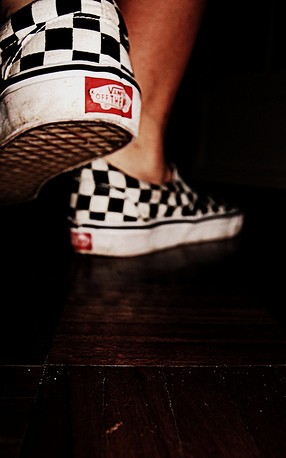Sponsor Me: The Pairing Of Band And Brand. Part One
IIt takes more than a swipe of your debit card to send that million-dollar hit to the masses. After all of the recording sessions, promotional expenses, and pit stops on tour, the only break you get to look forward to is that guitar malfunction.
An oft-applied method of relieving some financial hardship in this industry is to acquire an endorsement deal. In a nutshell, you get easier access to your favorite products and services in exchange for some form of advertising to the supplier.
Everybody knows that celebrities help sell stuff. Television commercials are nearly plagued with appearances from actors and athletes confessing their love for some kind of a sports car or cold medicine, and the viewers aren’t ignorant to the rewards paid out for these cameos.
Musicians, however, often enter the world of sponsorships from a different angle. In the time leading up to their chart-topping success they can be found spending their last penny on that piece of gear, signature outfit, or stage prop that allows them to charge on and break new ground in this industry. Though they effectively mean the same thing, the music industry tends to prefer the word “endorsement” to “sponsorship,” something that hints to a feeling of support and passion rather than charity or corporate image. Musicians are quite vocal about the brands they trust, whether they partner with them or not; you won’t usually find an actor tweeting about their favorite toothpaste or eye cream without some hidden motivator.
What It’s All About
It’s pretty clear how an artist benefits from an endorsement, but there are more lenses to use from the manufacturer’s standpoint. “The feedback that we get from players using our pedals helps us refine what we do and improve our products,” says Aimish Wallace, Director of Operations at Diamond Pedals. Fans of bands become fans of the brands they use and this Nova Scotia based company has attributed a lot of its sales to its association with Buddy Miller (Band of Joy/Emmylou Harris). “He’s known as a real ‘tone guy’ and I think the people that are aware of that look pretty closely at the stuff he’s using to achieve his sounds.”
When you’re looking to get free gear you’ll probably think you have to be famous. SABIAN Cymbals’ Sales and Artist Relations Manager, Terry Ryan, describes it as visibility. Drummers like Daniel Adair of Nickelback and Neil Sanderson of Three Days Grace are keeping brand recognition alive when they beat their splashes and crashes in front of thousands of fans every night.

Image credit: steviep187 on Flickr
That being said, Ryan also thinks it’s very important to foster the relationship at an early stage when you find the right act. “Artists tend to need you more when they have no money,” he says, outlining the importance of fostering loyalty in order to keep your advertising economical. “You hope they elevate their career.” Assuming they do, a band that becomes an international success will prove a worthy investment for any endorser. “If you’re in Spain and Rush performs, our logo is the same… It gets us a wider visibility at a minimum cost.”
Ask Fred DiSanto of Godin Guitars what matters most and he’ll say: “Heart! All of our artists have played a Godin even before we were aware of it.” The company’s artist program is a vital part of its success as a manufacturer and goes hand-in-hand with media coverage and a great dealer network.
Rarely do reps like Wallace, Ryan, or DiSanto find themselves scouting for new artists when they get so many sponsorship requests from bands all over the country, but it can happen. When it does, the terms of the relationship are quite varied. Dan Hay, guitarist of Amost The Transparent, cites how his deals with Empress Pedals and Wicked Guitars came together: “When [we] started touring more and playing some bigger shows, they asked me if I’d like to use some of their gear on stage.” While working with these suppliers, Hay can happily play whatever piece of equipment he likes on stage. “They’re pretty easy going about my obligations. Unlike other companies, Wicked doesn’t require me to only use their guitars… same with Empress.” Amost The Transparent’s latest album features many tones shaped by his Empress pedals, including one that sounds like “a backwards spaceship.”
Advertising requirements are usually a big concern for somebody considering an endorsement deal – everything comes at a price, right? Simple Plan guitarist Jeff Stinco says it’s circumstantial but it can happen: When they weren’t busy recording, touring, and releasing their latest album, Get Your Heart On!, they were doing ads for manufacturers like Sennheiser, DiMarzio, T-Rex, Mesa Boogie, and Fender. “It’s a case-by-case thing and we always make sure that the company understands our desire to expose a product that we love in a very organic way. We don’t wish to become sales people; we are here to help spread the word.”

Image credit: katrinalopez. on Flickr
Being on the roster for a gear company comes with other perks than discounts and promotional outlets. Occasionally you’ll be privy to new products or services. Stinco explains: “We have access to some special tweaks that are not necessarily useful or available to the general public but help us out on the road.”
The other issue you might face with an endorsement is your ability to continue using the other brands you enjoy. Vans – well known in the music industry for their annual Warped Tour – expect a certain degree of exclusivity from their athletes but like to keep things more organic with their artist roster. Chris Overholser, Senior Marketing Manager for the company, says: “One of our main tenants is to support creativity. By being heavily involved in music we get to be front and centre.”
Holding a global perspective has allowed Vans to give back to those in need. An effort between the shoe company and Pearl Jam bassist Jeff Ament will see the proceeds from a signature sneaker help build a skate park on the Pine Ridge Reservation in South Dakota – a community with a tragic past and high rates of poverty. Overholser says that working with musicians has opened doors to these types of opportunities and is a very important bi-product of endorsement. “We want people to wear Vans because they care about what we’re doing.”
Originally posted in the September/October 2011 issue of Canadian Musician magazine. Chris Gallant is a singer-songwriter and touring musician from PEI who likes to write about the things he wished he knew before entering “The Industry.” He can be reached at chris.s.gallant@gmail.com.


Comments